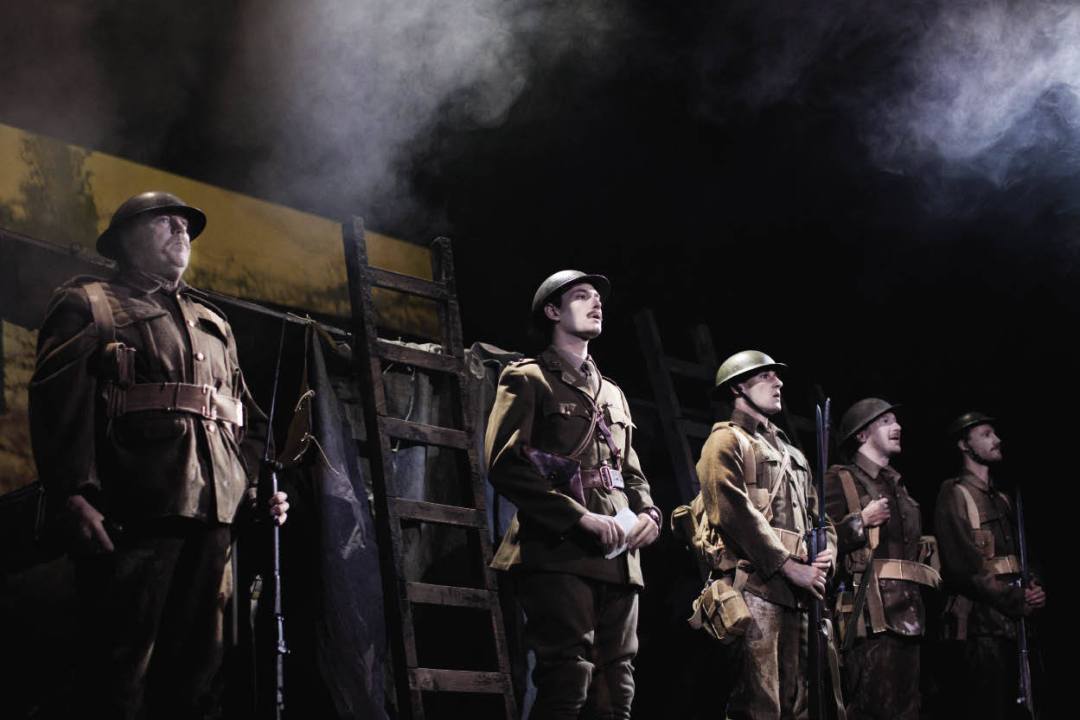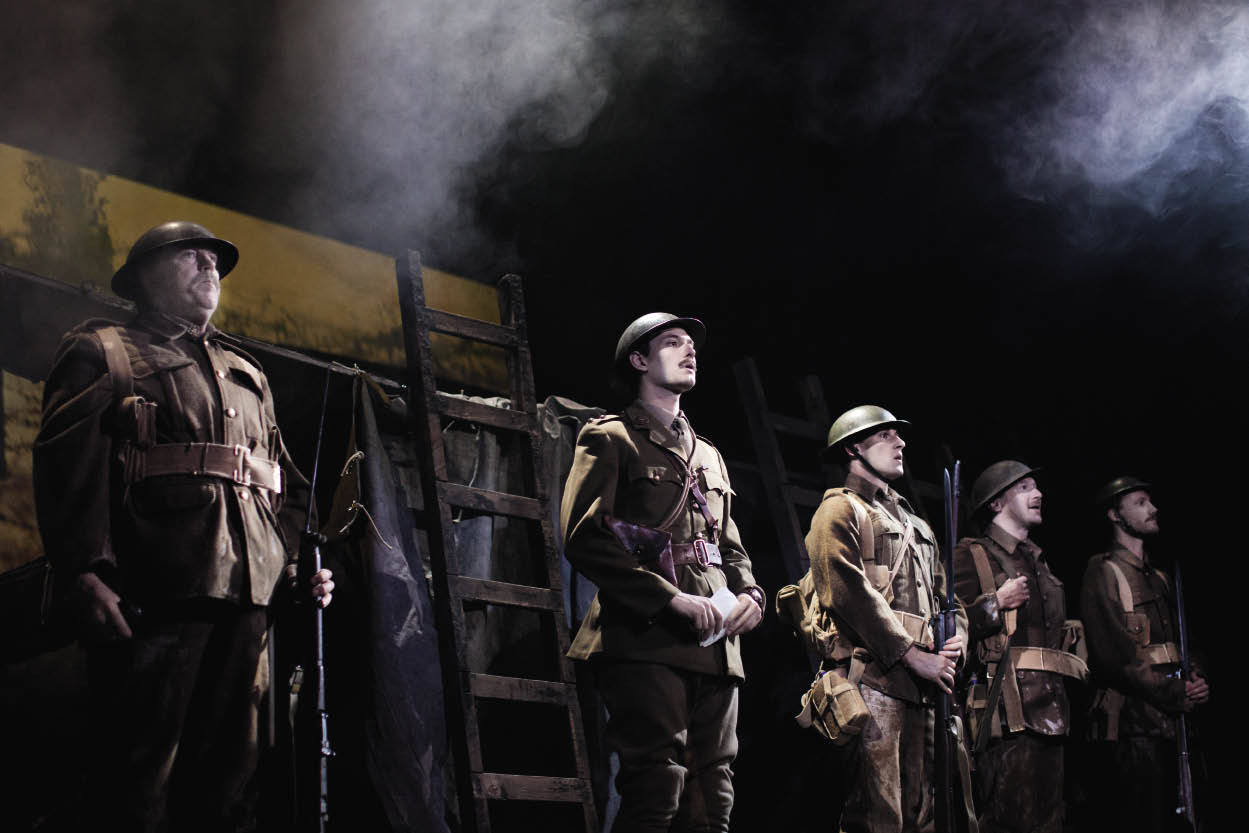Who’s my favourite stage actress? Since you ask, Olivia Williams in Shakespeare and Nancy Carroll in anything.
Who’s my favourite stage actress? Since you ask, Olivia Williams in Shakespeare and Nancy Carroll in anything. Currently, she’s starring in the weirdest show I’ve ever seen at the Almeida in Islington. Weird because it’s so predictable. The Almeida likes to attract the purists rather than the tourists and it seeks out half-forgotten masterpieces or wacky new experiments. If you want Carpathian tragedy or biblical mock-epic or Inuit slapstick, then the Almeida’s the place to look. A stage version of a David Mamet movie is positively abnormal by its standards.
House of Games, directed by Mamet himself, was an arid and diffident debut and Lindsay Posner’s version is entirely different — earthy, handsome and vibrantly sexy. Nancy Carroll plays a psychiatrist, Margaret, who joins a gang of con men while investigating a book about swindlers. When she volunteers to help with a hustle involving a suitcase full of cash, she finds herself falling for the gang’s suave ringleader, Mike. Though she realises the relationship may expose her to exploitation, she just can’t help falling for him. Mamet’s screenplay — neatly adapted by Richard Bean and supplemented with lots of topical gags — explores the common ground between the sweet nothings of disloyal lovers and the theatrical techniques of con artists. Nancy Carroll’s steely but vulnerable Margaret is matched by the exceptionally charismatic Michael Landes as the gang boss. Their chemistry keeps the story moving along nicely and they’re well supported by Al Weaver, who brings a blend of restless lechery and comic self-pity to the role of Bobby.
It’s strange that the show isn’t a sell-out. Witty, intelligent, fetchingly designed and plotted with exquisite precision, it may simply be too much fun for Islington. Prices start at £8 and the curtain falls at 9.15, leaving plenty of time to re-examine the plot in the Almeida’s bar. A perfect night out. It surely stands a decent chance of a West End transfer.
Which is where the stage adaptation of Birdsong has arrived 17 years after it was published. Set in the elegant and thoroughly hypocritical world of Amiens in 1910, the play introduces us to the sad but beautiful Isabelle and the wealthy but despotic René. Their marriage isn’t entirely loveless since René loves beating his wife up every night. Along comes a dishy young Englishman, Stephen, an orphan who speaks four languages and is blessed with fabulous quantities of self-possession. He takes Isabelle’s side against her husband, helps her smuggle food into the homes of striking weavers and, after seducing her, persuades her to ditch René and set up home with him. Stephen is 20.
All this is faithfully and unhurriedly presented. There’s good comic work from Iain Mitchell as René’s tedious friend Bérard, the bore to end bores, who interrupts everyone and anyone to deliver clichéd views on music, culture and steam engines. The problem with putting novels on stage is that the novel is a wanderer whereas the play likes to stay put. Here, each shift of location is indicated by a new image projected on to the back wall and a new bit of scenery dropped from the flies. The wires aren’t too obtrusive and the sets wobble only occasionally. More of a problem is the lack of emotional texture. Isabelle and Stephen’s affair has the hollow abruptness of a speed-dating advert. Meet, greet, match, mate. The dangers of oversimplistic gesturing are ever-present. Isabelle slinks back to her husband without telling Stephen and his bewildered anguish is presented through the dramatic channels of sprinting and shouting. He rushes to the wings. ‘Isabelle!’ he wails. He rushes to the opposite wings. ‘Isabelle!’ He rushes to the middle. ‘Isabelle!’
Next we cut to the Western Front where Stephen, after two years of fighting, has undergone a transformation almost Blair-like in its scale and suddenness. The scent of blood has turned him from Bambi to Rambo. No more the reckless lothario, he’s now a brutal and cynical veteran who bursts into ironic guffaws whenever a new recruit asks him what the war is about. His icy detachment and emotional turmoil are skilfully portrayed by Ben Barnes but it’s hard to sympathise with a character so profoundly disturbed that he threatens innocent Frenchwomen with a knife, and so in thrall to superstition that he sifts the innards of dead rats hoping to find auguries of the future written in their offal.
His reunion with Isabelle (now badly scarred after a bomb blast) is genuinely touching. And the closing scenes, set deep underground, are handled with as much aplomb as the physical restrictions allow. This is an accurate and sometimes moving account of Sebastian Faulks’s bestselling novel. It may run here for many months and then leapfrog to Broadway. Then again it may not. I wouldn’t know. Ask a dead rat.








Comments